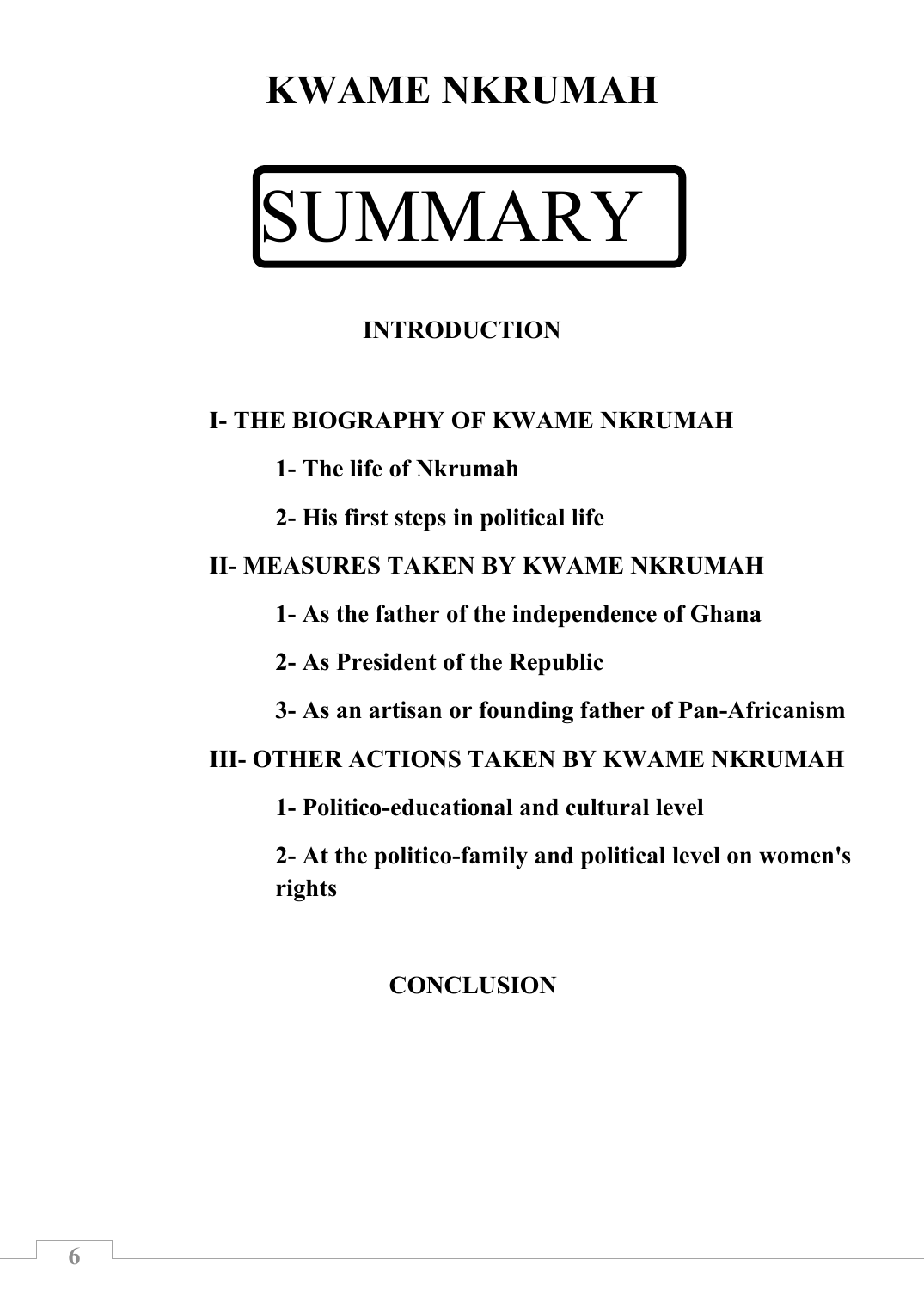YAO SAINT YVES YOBOUE - THE BIOGRAPHY OF KWAME NKRUMAH
Publié le 17/03/2022

Extrait du document
«
I- THE BIOGRAPHY OF KWAME NKRUMAH
1- The life of Nkrumah
Kwame Nkrumah was born in 1909 in "Gold Coast", the name given by the British Empire to
Ghana.
Despite his modest social origin, Kwame Nkrumah enjoys an education nonetheless paid and
mainly intended for the children of traditional notables, this one having to allow the British colonial
administration to rely on a privileged class of natives from which his local agents.
After completing his first years of study with the Jesuits (the company of Jesus), Nkrumah became a
student instructor at the age of 17 and was noticed by an inspector who sent him to continue his studies in
the suburbs of Accra.
In 1935, a few years after leaving college, he moved to the United States to
complete his studies at Lincoln University.
After doing odd jobs in parallel with his studies, he obtained a license in economics and sociology in
1939.
2- His first steps in political life
Nkrumah was a member of an association of African students which he helped transform into the
Association of African Students of the United States and Canada and was its president between 1942 and
1945, and his compass was the journal of the association.
featuring Pan-African ideas.
Nkrumah is indeed
interested in issues of colonialism and imperialism.
He was very interested in the writings of Marx and
Lenin because they had developed a philosophy of character to best respond to the causes of his struggle.
He is mainly interested in Marcus Garvey's “Return to Africa” and “Africa to Africans” theories.
However, he rejects the concept of "black race purity" advanced by Garvey.
Shortly before leaving the United States for Great Britain, where the Pan-African Congress of 1945
was to be held, he wrote the pamphlet Towards National Liberation in which he developed his analysis of
colonialism: it was described as a consequence of the needs of capitalism to access raw materials at the
lowest cost, to have cheap labor and to get rid of its overproduction
The speeches on the civilizing mission and on the education of the natives are for him only pretexts
to conceal the reality of colonialism.
In London, he joined the West African Students' Union (WASU) and
briefly began studying law, but soon found himself engrossed in his political activities.
He is co-editor,
with communist activist George Padmore, of the final declaration of the Pan-African Congress in
Manchester..
»
↓↓↓ APERÇU DU DOCUMENT ↓↓↓
Liens utiles
- Kwame Nkrumah - Biography.
- SAINT-YVES (Mlle de). Personnage de l'Ingénu
- GHANA : L’AUTOBIOGRAPHIE DE KWAME NKRUMAH (résumé)
- Saint Laurent (Yves Mathieu, dit Yves) Couturier français
- Saint Laurent (Yves Mathieu, dit Yves)




